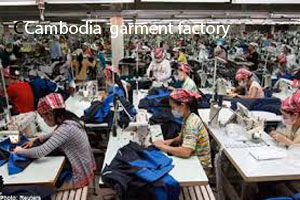
Cambodia sees sharp rise in the number of garment factories
YarnsandFibers News Bureau 2015-07-29 15:00:00 – PHNOM PENHCambodia has witnessed 21 percent rise in the number of garment and footwear factories, from 528 in late 2013 to 640 in March 2015, while exports are up by more than 10 percent in the past 16 months according to a recent International Labour Organisation (ILO) report, which claims the rapidly growing state of the industry has confounded those who suggested that increased minimum wages for workers would lead to a decline of the sector and the exit of inward investors.
The buoyant state of the textile industry in Cambodia also offers a pointer for Myanmar where Korean investors are threatening to leave if new minimum wage legislation is implemented.
The minimum wage in Cambodia has more than doubled since 2012, when it stood at US$ 61. The monthly minimum wage level of US$128 (effective as of 1 January 2015) is lower than the likes of China (US$297), the Philippines (US$269) and Thailand (US$237), but above Sri Lanka (US$66), Bangladesh (US$71) and Pakistan (US$99 to US$119).
The ILO said that the garment manufacturing sector now employs 600,000 workers in Cambodia, although this figure relates to the export sector only and does not include factories working as sub-contractors.
This is not only a good news for Cambodia's garment and footwear industry, but also for the workers in these sectors.
Welcoming the fact that the government, unions, and employers all committed in June 2014 to a minimum wage review process is evidence-based and takes into account a range of social and economic factors. In this context, the ILO hopes that [its new Bulletin] will become a vital resource helping key actors in the world of work to have an informed discussion and constructive negotiation on minimum wages and other social and economic issues in the garment and footwear industry.
It is vital that the impact of the minimum wage on enterprises, productivity, competitiveness and employment is taken into account. Workers and their unions are understandably concerned to ensure that wages are adequate to meet the needs of workers and their families.
Market Intelligence
Ask for free sample Report

experience
Customer Base
dedicated team
Countries Served Worldwide









